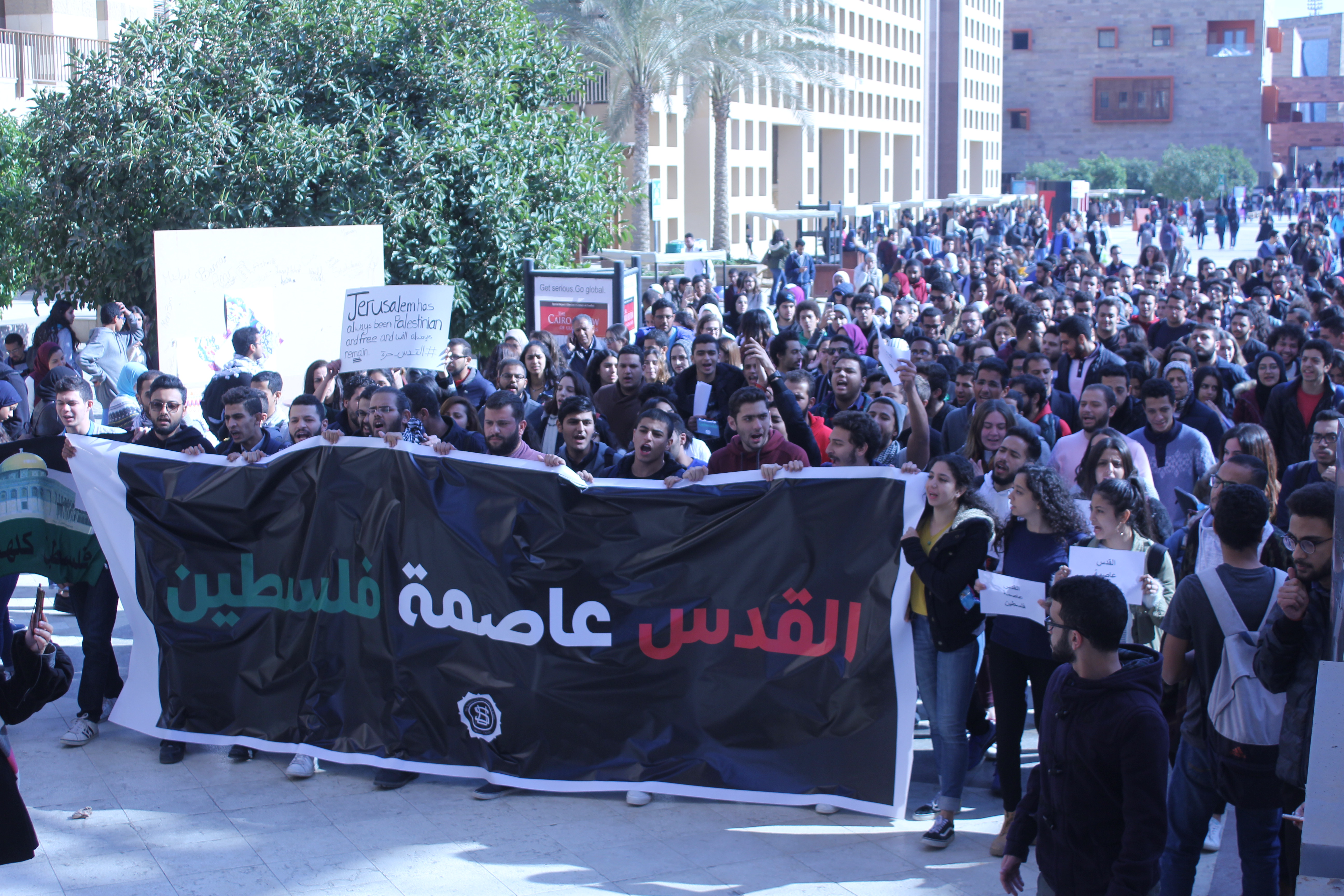Postponing the Peace Process and the Politics of the Jerusalem Decision
By Malak Sekaly
Follow @malaksekaly
Last December, US President Donald Trump announced his decision to relocate the American embassy from Tel Aviv to Jerusalem, thereby recognizing the Holy City “full and undivided” as the capital of the State of Israel.
The United Nations General Assembly (UNGA) promptly passed a resolution on December 21, with an overwhelming 128 Member States voting against Trump’s decision.
The Caravan sat with Founding Dean of the School Global Affairs and Public Policy (GAPP) Nabil Fahmy to discuss the implications Trump’s decision bears on the Middle East.
Dean Fahmy served as Foreign Minister from July 2013 to June 2014, after serving in several diplomatic posts across the globe and in international institutions, such as the United Nations (UN).
Why do you think President Donald Trump decided that Jerusalem should be the new capital of Israel?
He was clearly driven by his American choice donors for his campaign who tended to be from the conservative side of the American Jewish spectrum. Secondly, I think he is misinformed and insensitive to the complexity of this issue and how it relates to different constituencies.
I think by dealing with this issue now in this way, it makes it very different for Palestinians and Israelis to sit and negotiate a compromise between them.
Is there significance to the General Assembly resolution, since it is non-binding?
You have 14 members of the Security Council, including strong allies to America, like Britain and France, all voting against America.
Then you have the General Assembly, with a very large number of states, those who stood beside America and Israel are a very small number.
And in spite of the tremendous pressure put by the Americans, still, over 120 countries voted in favor of the resolution.
For the UN, at these levels, to express itself that way, against the superpower is significant, irrespective of the fact that it is a non-binding resolution.
What does the United State’s recognition mean as the leading global power?
I think the US is pursing domestic politics at the expense of international law. And I think once America does that it creates a crack in the fundamental tenet of the peace process, that to achieve peace we have to respect law.
Respecting law means you cannot occupy territory by force and that disputed areas need to be resolved through negotiations in accordance with the law.
So, the concern is the United States is the superpower, so the superpower decides to ignore international law.
Secondly, the United States has been the main proponent of the peace process, the main sponsor of the Arab-Israeli peace process, it’s taking a position very biased to one side, that being another problem.
Does the United States have the legal authority to make such decisions?
It has the power to make unlawful decisions. It cannot provide international recognition for Jerusalem. It doesn’t change the legal status of Jerusalem but again for me the most dangerous element of this is it really negates any possibility of having to negotiate a settlement.
How will Egypt specifically be implicated?
We are not implicated, we are just frustrated. We would like to support a negotiated settlement between Palestinians and Israelis.
It is very difficult in this environment to really support a credible negotiation because it doesn’t seem to be credible. On the one hand, you have an Israeli government that does not believe in a two-state solution and you have an American government that is violating the whole basis for a peaceful solution.
Why is the decision of international significance?
If you look before this decision, not one single country moved its embassy to Jerusalem. A few in Latin America had nuances but not a single country [moved it]. When the US opens the door for that, it definitely is a negative element.
But again, my most significant concern is that it really negates any possibility for negotiated settlement and you’re going to end up with friction and violence as a result of that, especially if you see more decisions coming after that.
Do you think the change will create a wave of solidarity across the region?
Solidarity, I’m not sure. But I would argue that it brought Palestine back in the minds of people in the region and internationally. After four or five years of being distracted away from this issue because of the other conflicts and turbulence in the Middle East. So, it hasn’t renewed solidarity but it has definitely refocused the attention on the Palestine issue.
Is there a possibility of a third Intifada (Uprising) in your opinion?
I really would hope not, but I cannot rule that out if the Palestinians’ rights continue to be disregarded and provocative actions, like the Jerusalem decision and the imprisonment of a young Palestinian teenager, Ahed Tamimi, are taken.



